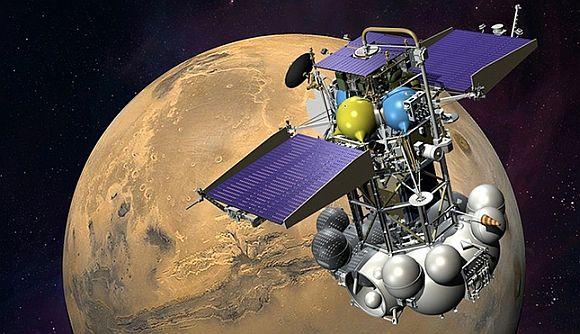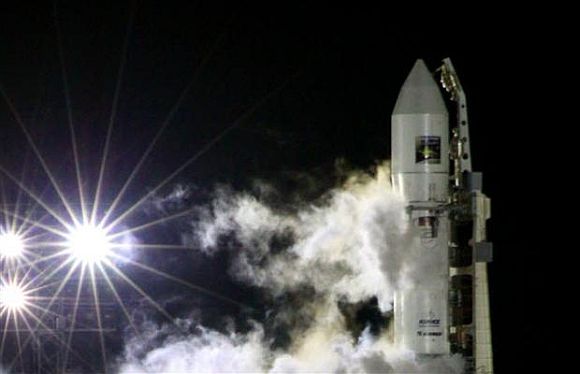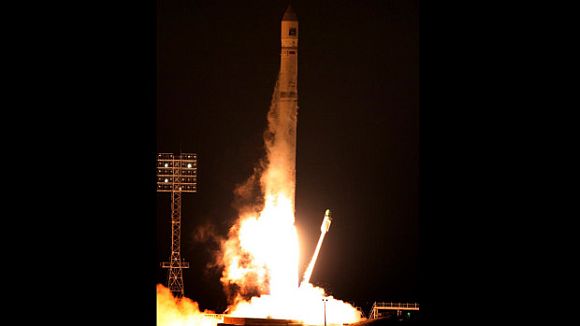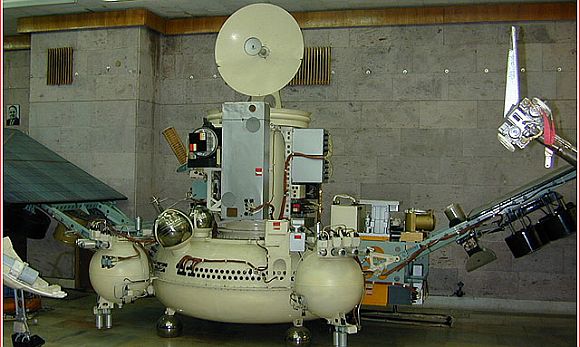The unmanned $170 million Phobos-Ground craft, Russia's first planetary mission in 15 years, could pose a major threat for earth.
The Russian space probe became stuck in orbit on Wednesday after an equipment failure, raising fears it could come crashing down and spill tons of highly toxic fuel on Earth unless engineers can steer it back to its flight path.
Click on NEXT to go further...
Can Russia turn on spacecraft before it endangers earth?
Image: The Zenit-2 booster rocketThe unmanned probe was successfully launched by a Zenit-2 booster rocket just after midnight Moscow time (2016 GMT Tuesday) from the Baikonur cosmodrome in Kazakhstan.
It separated from the booster about 11 minutes later and was supposed to fire its engines twice to set out on its path towards Mars, but never did. The craft was aiming to get ground samples from Phobos, one of Mars' two moons.
Click on NEXT to go further...
Can Russia turn on spacecraft before it endangers earth?
A US expert said the spacecraft could become the most dangerous man-made object ever to hit the planet.
The mishap is the latest in a series of recent Russian failures that have raised concerns about the condition of the country's space industries.
An unnamed person in Russia's space industry told the Interfax news agency that there had been warnings before the launching that glitches in the probe's command and control system had not been fully resolved.
Click on NEXT to go further...
Can Russia turn on spacecraft before it endangers earth?
The failure left the 30,000-pound probe, called Phobos-Grunt -- "grunt" being the Russian word for ground -- stuck in an egg-shaped orbit that at its lowest point is just 129 miles above the Earth.
The atmosphere, though thin at that altitude, will create enough drag to eventually cause the spacecraft to fall to Earth. When and where that might happen, and how much of the spacecraft might survive a fiery re-entry, is impossible to predict at this point.
Engineers were waiting to re-establish communication with the probe -- expected early Thursday morning Moscow time -- to send new engine-firing instructions to its computers.
Click on NEXT to go further...
Can Russia turn on spacecraft before it endangers earth?
But there was no guarantee that the problem was a software one, and the engineers were racing the clock.
Although the spacecraft has enough power for at least three days and probably longer, the decaying orbit means it could soon reach a point where the engines would not be able to send it away from Earth, said Anatoly Zak, an expert on the Russian space programme who tracks the country's efforts at russianspaceweb.com
The spacecraft is 13.2 metric tons (14.6 tons). Russian data shows that most of that weight -- about 11 metric tons (12 tons) -- is fuel, NASA chief debris scientist Nicholas Johnson said.
Click on NEXT to go further...
Can Russia turn on spacecraft before it endangers earth?
The key is whether that fuel remains in liquid form or freezes. If it is liquid, it would harmlessly blow up about 50 miles (80 kilometers) above ground, he said.
If the fuel freezes, it poses more of a hazard to Earth because it could survive the fiery re-entry and spill on impact. But most US experts, including Johnson, believe it will likely stay liquid.
Click on MORE to see another feature...







article